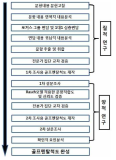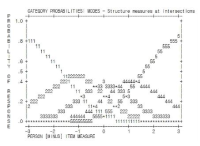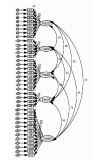This study aims to suggest the guide line for weight category sports(Taekwondo, Judo, Wrestling, Weightlifting, and Boxing) who have to lose weight to pass weigh-in before games. Reference data was collected from RISS, Medline, PubMed, SciELO and effects of short term weight loss on physiological variables(body composition, physical fitness, blood components, oxidative stress and hormone, immune function) were analyzed. Also, weight loss procedures for weight category sports athletes were analyzed in details. The results of the research are as follows: weight category sports athletes prefer short term (3~5 days) weight loss methods (3~5%) with dietary control, sweating and exercise. Physical changes caused by the loss in body weight, fat-free mass, and BMI, however, do not affect body fat percentage. Different changes of physical strength element depend on weight reduction period. In short term weight loss method, anaerobic exercise capacity, muscular strength, and reaction time partially decrease and affect staying power. In contrast, long term weight loss method do not affect aerobic and anaerobic exercise capacity. Furthermore, most of previous studies show that blood component change has negative effect on body water balance, stress-related hormone, and immune function. In conclusion, short term weight loss method negatively affects athletic performance of weight class competition athletic. Therefore, careful long term weight loss methods are recommended with dietetic consideration to prevent dehydration during weight loss period. Excessive weight loss on lightweight athlete should be prevented by institutional basis as well.

The purpose of present study is to develop the'Golf Mental Scale'that measures and assesses golf players' cognitive, emotional, behavioral response per golf mental factor experienced while competing in depth. In order to achieve this research purpose, Researcher collected raw data of golf mental question through literature review and interview with 8 members of Korean male national golf team and gathered questions per factor through Deductive-Inductive Content Analysis for the raw data. Then, Researcher conducted first and second questionnaire survey targeting 253 of elite & pro golf players and conducted Rasch Model and Confirmatory Factor Analysis for the data collected using SPSS 21.0, Winsteps Ver. 3.65 Program, AMOS 18. The conclusion reasoned out through these research process was as follows: First, golf players' psychological factor structure identified was revealed as Concentration, Self-confidence, Anxiety and Arousal control, Emotion control, Thought control. Total 37 questions were determined. Second, 5 point scale was revealed to be a good fit for Golf Mental Scale. Third, the result of Construct Validity Verification of CFA showed that Golf Mental Scale model was a good fit. Fourth, Reliability of Golf Mental Scale showed high level by recording Cronbach' α value .936. Fifth, Internal Consistency of Convergent Validity and Discriminant Validity was revealed to be satisfied. Eventually, Golf Mental Scale is expected to be used practically as a functional test tool that provides participant's response toward each situation-specific questions concretely and an objective evaluation of participant's golf mental ability per factor considering questions'level of difficulty and participants'characteristic.


